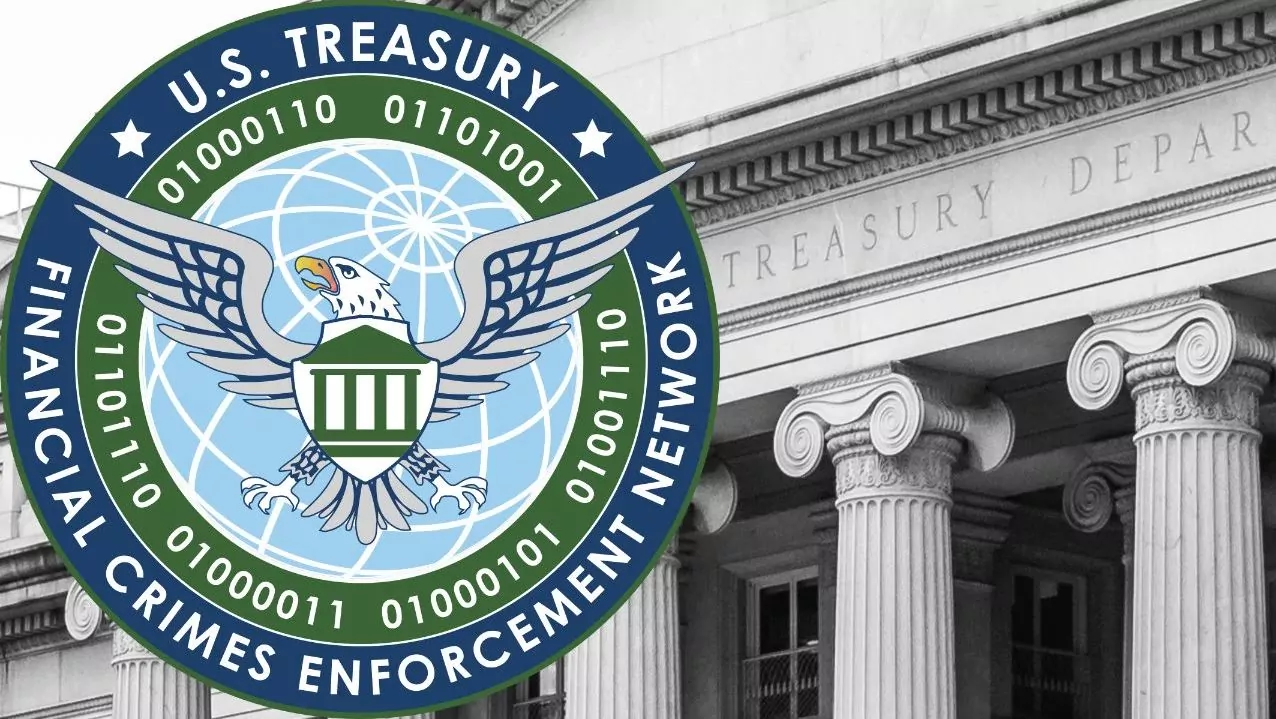
FinCEN Compliance Lawyer
A wide range of organizations and businesses are required to comply with federal anti-money laundering laws. These laws are also applied to prosecute individuals and legal entities for various types of financial crimes. Additionally, the federal government closely monitors compliance with AML/CFT (Anti-Money Laundering/Countering Financing of Terrorism) policies. Failure to meet these requirements can lead to significant fines, economic sanctions, and even criminal liability.
Therefore, financial institutions, brokerage firms, and other businesses need to comply with AML regulations. They also need to be prepared to defend themselves during federal investigations. Our financial crimes lawyers provide comprehensive services for complying with AML requirements and protecting legal entities.

What is FinCEN?
FinCEN (Financial Crimes Enforcement Network) is an agency of the U.S. Department of the Treasury that focuses on identifying, preventing, and investigating federal financial crimes. It plays a key role in maintaining financial stability and protecting against illegal activities such as money laundering, terrorism financing, financial fraud, securities fraud, and other crimes related to money movement.
The primary goal of FinCEN is to collect, analyze, and disseminate information about suspicious financial transactions to assist national and international bodies in combating criminal activity.

The primary functions of FinCEN:
- The accumulation of data on financial organizations that are required to file reports on suspicious activities (SAR, CTR). This data helps identify illegal activity;
- Providing analytical and informational support to federal agencies, state, and local law enforcement agencies;
- Establishing requirements for financial organizations to prevent federal financial crimes;
- Active engagement with international organizations to combat financial crimes on a global scale.
FinCEN operates as a separate division within the U.S. Department of the Treasury. Its activities are organized through several key elements. The Data Analysis Division is responsible for processing and interpreting financial information. The Legal Division ensures compliance with laws and regulatory standards. The Technology Division develops and maintains platforms for data collection and analysis.
Financial Crime Laws and FinCEN Enforcement Mechanisms
Financial crime laws are a collection of legal norms and mechanisms aimed at preventing, investigating, and punishing crimes related to money and financial transactions. The primary goal of these laws is to protect the economic system and combat white-collar crime.
Financial crime laws cover a wide range of white-collar crime violations:
- Money laundering: the process of making illegally obtained funds appear legal by funneling them through financial organizations.
- Financing terrorism: the use of funds to support terrorist organizations or activities.
- Fraud: the illegal acquisition of money or property through deception (investment schemes, mortgage fraud, forgery of documents, etc.);
- Tax evasion: the intentional concealment of income or assets to avoid taxation.
- Corruption and bribery: the use of an official position for financial gain or other illegal benefits.
- Securities manipulation: Securities fraud allegations areillegal activities in the stock markets, such as insider trading or price manipulation. Most securities fraud investigations concentrate on brokerage firms, financial entities, and advisors.
- Embezzlement and unlawful appropriation: the theft of funds or assets from an organization by an employee or third parties (electronic fraud, raiding, etc.).
- Cybercrime in the financial sector involves using technology to steal data, money, or manipulate financial systems. This includes hacking into banking systems, phishing, stealing personal information, and cryptocurrency fraud.
- Fraudulent bankruptcy: the deliberate fraudulent declaration of bankruptcy to evade paying debts, taxes, or obligations to creditors.
What are financial crime laws?
In the USA, the foundation for combating financial crimes is a series of legislative acts aimed at preventing money laundering offenses, financing terrorism, and other illegal operations.
The Bank Secrecy Act (BSA) is a law enacted in 1970 that requires financial entities to report suspicious activities and file reports on large transactions. This law serves as the foundation for monitoring financial flows and detecting illegal activities.
The Patriot Act, passed in 2001, strengthens measures to combat the financing of terrorism and requires financial organizations to implement stricter anti-money laundering programs.
The Anti-Money Laundering Act (AML) is a law aimed at combating money laundering. It supplements and expands upon previous regulations, setting stricter requirements for financial organizations, including mandatory customer due diligence (KYC).
The Foreign Account Tax Compliance Act (FATCA) is a law that requires foreign financial institutions to provide information about accounts held by American taxpayers. This helps in identifying tax evasion.
What are FinCEN’s enforcement mechanisms?
FINCEN enforcement mechanisms consist of a set of tools and procedures to ensure compliance with financial laws, prevent crimes, and protect the U.S. financial system. It operates under the auspices of the U.S. Department of the Treasury and is one of the key agencies responsible for ensuring legality in the financial sector. It employs analytical, supervisory, and sanction measures to prevent the use of the financial system for illegal purposes.
Financial entities are required to file reports on suspicious transactions (Suspicious Activity Reports, SAR) and large transactions (Currency Transaction Reports, CTR). These data are submitted to the FinCEN analytical database, where they are processed using advanced technologies to identify suspicious patterns.
FinCEN monitors financial activity and shares data with law enforcement agencies to investigate suspicious cases. The agency also provides support in uncovering complex federal financial crimes through interagency and international cooperation.
FinCEN is developing standards and requirements for AML (Anti-Money Laundering) programs that must be implemented by all financial organizations. This includes customer due diligence (KYC – Know Your Customer), internal controls, and regular audits.
The agency has the authority to impose fines on organizations and individuals who violate financial crime laws. For example, significant financial penalties can be applied for insufficient compliance with AML (Anti-Money Laundering) procedures or failure to meet reporting requirements.
Ensuring compliance with FinCEN requirements
Complying with FinCEN requirements is a legal obligation and a crucial factor in protecting your business from reputational and financial risks.
Regular reporting, customer due diligence (KYC), and implementation of compliance programs and anti-money laundering (AML) efforts help companies minimize risks and strengthen trust from partners and clients.

Violating the requirements results in civil penalties like fines. Additionally, FinCEN has the authority to initiate investigations against companies and individuals. In cases of serious violations, criminal charges can result in severe consequences, including prison sentences for those responsible.
Individuals found in violation of FinCEN requirements may face bank account suspension, asset freezing, or revocation of their business licenses.
AML Compliance Program
AML (Anti-Money Laundering) refers to a comprehensive set of measures, procedures, and rules aimed at preventing money laundering and the financing of terrorism. The term AML encompasses a wide range of activities, including the identification of suspicious transactions, customer verification, and the implementation of internal policies to comply with international and national laws.
Every company needs to analyze potential risks associated with customers, operations, business geography, and the products used. Continuous monitoring of financial transactions helps to identify suspicious activities (for example, volumes or frequencies of transactions that are unusual for a client). Upon detecting suspicious transactions, companies are required to report to the relevant authorities like the Securities and Exchange Commission (SEC) and the Financial Industry Regulatory Authority (FINRA).
Having an AML program is a mandatory requirement for financial entities and many other organizations that deal with monetary funds. Our financial crimes lawyers are ready to assist your business in developing and implementing an effective AML program, conducting risk assessments, and providing legal counsel in the event of audits and investigations.
Customer Identification Program (KYC)
KYC (Know Your Customer) is a process for verifying clients, aimed at confirming their identity, assessing their trustworthiness, and identifying potential risks associated with financial transactions. KYC programs are used by banks, financial organizations, and other companies dealing with money to comply with international and national AML/CFT standards.
The KYC (Know Your Customer) process is based on collecting, verifying, and analyzing data about clients. The primary goal is to ensure that the client is legitimate and not involved in illegal activities. The program consists of the following stages:
- Verification of client’s personal information: full name, address, date and place of birth, citizenship, and more;
- Analyzing the client’s sources of income to ensure they are not linked to money laundering or other financial crimes;
- Based on the information collected, a risk level (low, medium, high) is assigned to the client, which determines the degree of control over their operations.
KYC is not a one-time process. Companies are required to regularly update customer data and monitor their financial activity for any suspicious transactions.
Suspicious Activity Reports (SARs)
SARs (Suspicious Activity Reports) are reports on suspicious activities that financial organizations and other entities are required to submit to regulatory bodies when they detect suspicious transactions or activities. The purpose of filing SARs is to identify, prevent, and investigate financial crimes.
The process of filing SARs is based on the obligation of financial institutions to report any activity that appears suspicious or deviates from a client’s usual behavior:
- Unusually large or frequent transactions without a clear business purpose;
- Operations involving complex or opaque schemes;
- Transactions related to high-risk regions or jurisdictions;
- Attempts to hide the true sources of funds.
After detecting suspicious activity, all available information about the client and transactions is gathered, including full name and identification details, transaction specifics (amounts, dates, locations), as well as the reasons why the transaction is considered suspicious.
The form includes all collected data, as well as a brief description of the suspicious activity and the reason for filing the report. In the United States, SARs are submitted through FinCEN using an electronic reporting system. In other countries, the report is sent to the relevant regulatory authorities. Companies are required to provide additional information upon request from law enforcement or regulatory agencies.
The obligation to file SARs applies to: banks and financial entities, insurance companies, payment systems and electronic wallet providers, cryptocurrency exchanges, brokerage and investment firms, lotteries, and gambling operations.
Why Choose Our Law Firm for FinCEN Compliance?
Violating FinCEN regulations can lead to hefty fines, legal proceedings, and even criminal penalties like imprisonment. Our firm offers a full range of legal services for organizations operating in the financial sector:
- Audit of current processes and identification of risks;
- Development and implementation of effective AML/KYC programs;
- Assistance in filling out and submitting Suspicious Activity Reports (SARs);
- Review of the company’s internal policies for compliance with FinCEN requirements;
- Representing the company’s interests in the event of audits by FinCEN or other regulatory bodies.
Adhering to FinCEN regulations strengthens a company’s reputation, reduces the risk of fines and sanctions, ensures transparency in financial transactions, and protects the business from legal and reputational risks.
Contact Us Today for Financial Crime Compliance Support
Our lawyers work closely with companies around the world, so we tailor legal solutions to the specifics of your business. Our team of financial crimes lawyers has extensive experience with FinCEN legislation and financial law. Major financial entities, investment companies, and startups trust us, valuing our competence and responsibility.
Don’t risk your business, contact us right now, to receive an initial consultation and discuss the next steps for compliance with FinCEN requirements. Start collaborating with leading experts in federal crimes and financial law!

FAQ
When is an AML program required?
The Anti-Money Laundering (AML) program is mandatory for all organizations involved in financial transactions: banks, insurance companies, cryptocurrency platforms, and payment systems. An AML program is necessary if a company processes transactions, deals with large sums of cash, or interacts with clients from high-risk jurisdictions. Having such a program ensures compliance with FinCEN requirements and helps avoid fines and legal consequences.
How to Determine Your AML Compliance Obligations?
Your obligations depend on the nature of the company’s activities, the type of clients, and the geographical regions of operation. To determine the requirements, it is necessary to analyze the business model and operations, study the applicable legislative norms, and assess the risks associated with the company’s activities.
When Should You Engage Defense Counsel for AML Investigations?
You should hire a FinCEN attorney if your company is suspected of violating Anti-Money Laundering (AML) requirements or is involved in a money laundering case; when receiving notifications of an audit from FinCEN or other regulators; if there’s a need to file Suspicious Activity Reports (SAR) or deal with inquiries regarding reports already submitted; or if you need advice on protecting the interests of the company or its employees.



